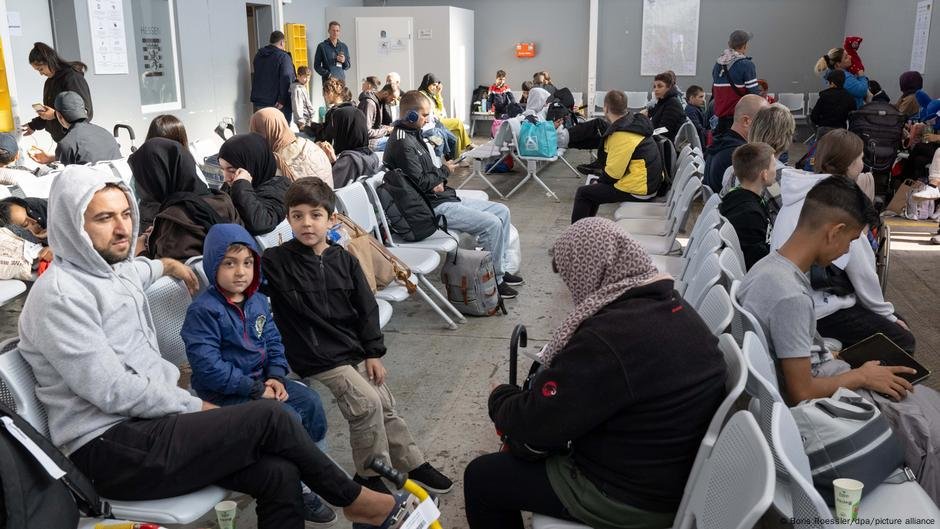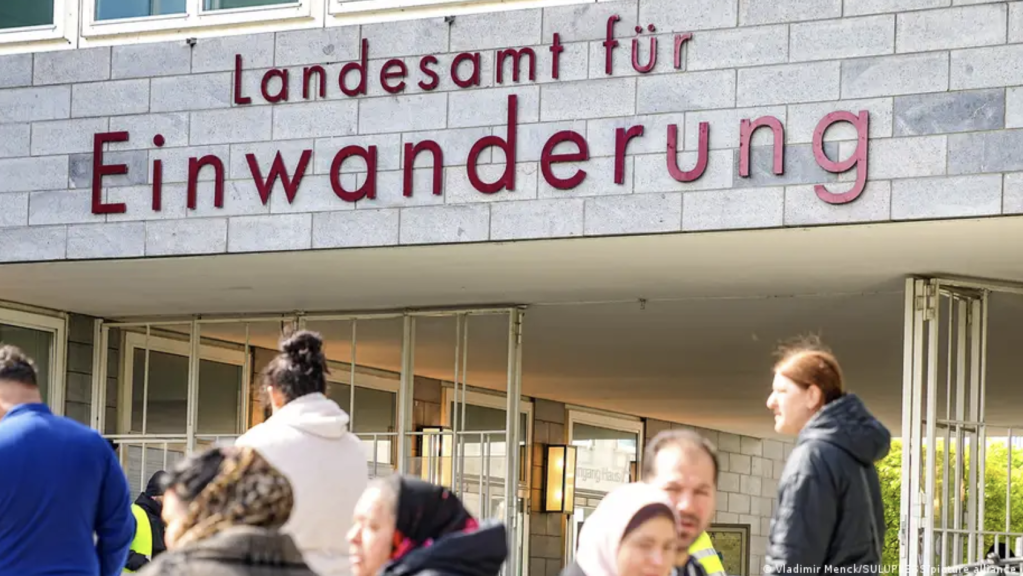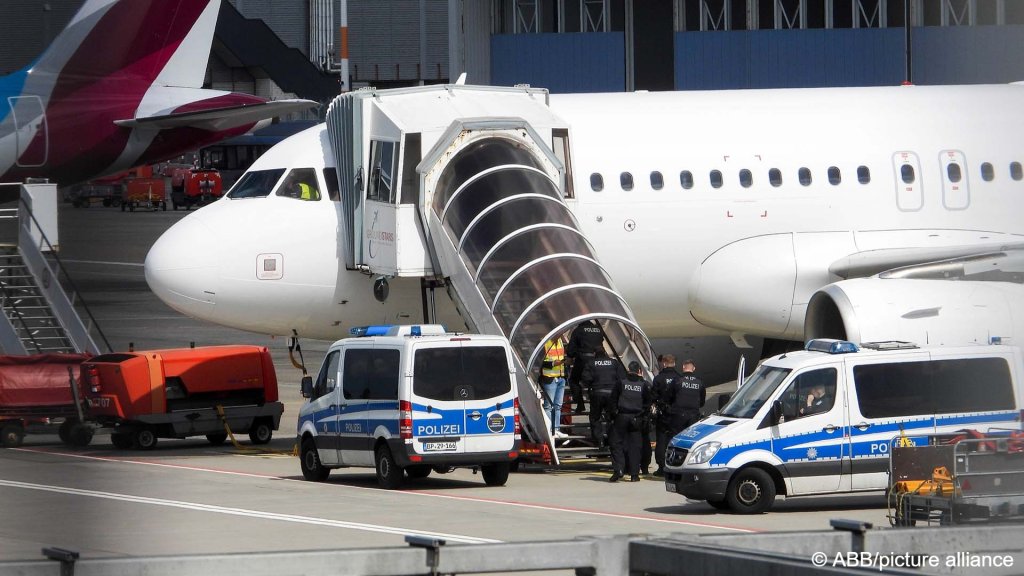In Bavaria, many refugees face challenges such as revoked work permits and denied training opportunities, despite Germany's pressing labor shortage, Stephan Dünnwald, spokesperson for the Bavarian Refugee Council, says.
Germany is adopting a hardline stance on migration, enhancing border controls and resuming deportations, and in some cases even revoking work permits for asylum seekers with stable jobs.
These measures aim to address the increasing flow of people entering the country without proper documentation. However, as the country grapples with a significant worker shortage, these anti-migrant policies appear to contradict ongoing efforts to address labor gaps.
Stephan Dünnwald, spokesperson for the Bavarian Refugee Council, criticized the policy for harming the southern German state's economy. "The migration debate, fueled by the CSU, preaches deportation at almost any cost," Dünnwald said. "The Bavarian economy is paying the price for this... people in Bavaria are being deported from work and education, and that many are being denied training permits."
Also read: Germany: After a returns flight takes off, what happens next?
Asylum applications in Bavaria
By the end of 2023, Bavaria hosted a significant number of refugees, primarily from Ukraine due to the ongoing Russian invasion. Ukrainians are the largest group, followed by asylum seekers from Syria and Afghanistan. Official data classifies "protection seekers" broadly, including those who applied for asylum, were rejected but remain tolerated, and Ukrainians under an EU directive granting collective protection.
Refugee distribution reveals a marked urban-rural divide in Bavaria. Urban centers like Bayreuth have the highest concentration of refugees, with 10.6 percent of its population classified as protection seekers, while rural districts like Straubing-Bogen and Coburg have just 1.3 percent. Mid-sized cities like Hof and Bamberg also show above-average numbers.

Bavaria recorded the second-highest number of asylum applications in 2024, behind only North Rhine-Westphalia. However, relative to its population, the state ranks lower due to the "Königsteiner Schlüssel" system, which allocates refugees based on population size and tax revenue.
While many refugees in Bavaria do not actually apply for asylum, as Ukrainians are granted temporary protection, most asylum claimants come from conflict zones such as Syria and Afghanistan. Across Europe, asylum application rates vary widely, with Germany ranking among the leading nations for total applications.
Also read: Germany ushers in a new bill to fast track deportations and curb knife crimes
Deportations and return policies
Around two-thirds of refugees in Germany are granted a protection status, allowing them to start working or pursuing an education once recognized, explains Dünnwald.
However, he adds, "in Bavaria, asylum seekers fear deportation due to prevailing rhetoric." Dünnwald also points out that "authorities often refuse work or training permits, and employers are hesitant to hire refugees, fearing bureaucratic hurdles and the risk of their employee/trainee being deported or losing their work permit."

Impact on training and employment
For non-recognized refugees, numerous barriers prevent integration into work and education, says Dünnwald. In Bavaria, rejected asylum seekers are prioritized for deportation over employment. This means that many are deported directly from their jobs or training programs, leading to "a massive waste of resources," according to Dünnwald.
It's an enormous waste of resources and a humiliating form of exclusion
This applies to all professions, he tells InfoMigrants, for example, a butcher’s apprentice from Lower Bavaria is currently being sought for deportation, leaving his employer dismayed. These examples are increasingly common, contributing to employers' hesitancy to hire refugees, he says.

Dünnwald shared further examples with InfoMigrants, including a refugee from Sierra Leone who had completed the first year of vocational training as a nursing assistant. Instead of enjoying his summer break, he was detained and deported back to Sierra Leone on August 16, 2024.
Numerous other cases contribute to a climate of fear among asylum seekers, even for those with existing work permits. For instance, Mr. K., an apprentice bakery sales specialist, was denied permission to continue his training and was instructed to leave Germany and reapply with a training visa.
Meanwhile, Mr. B., who had secured an apprenticeship in nursing with accommodation in Munich, found that the immigration authority would not allow him to proceed with either, instead requiring him to perform 20 hours of community service per week.
Also read: Germany: Welfare benefits for asylum seekers to be reduced in 2025
Challenges in deportation efforts
Many attempts to deport refugees without residence permits fail for various reasons, according to the State Office for Asylum and Returns. In 2023, 2,364 people were deported from Bavaria, while 3,110 planned deportations were canceled or aborted. Although further attempts were made, a spokesperson for the state office noted that this does not necessarily mean the individuals would ultimately remain in Germany.
In the first half of 2024, Bavaria saw just under 1,400 deportations, with nearly 1,700 more canceled. Reasons included issues like canceled collective flights or illness.

According to Dünnwald, "actual termination of stay through deportation is not always easy to implement," as many countries of origin are uncooperative -- a responsibility that falls under the federal government. Deportations can also fail if individuals go into hiding or present legal and medical challenges.
"Most of the affected individuals are not even deported in the end, but the intimidation and years of work bans make it difficult for them to gain a foothold in the labor market. It's an enormous waste of resources and a humiliating form of exclusion.
"If we want workers, we must also provide housing, daycare places, and schools, or even the migrants we want will go elsewhere. Refugees can already help alleviate many labor shortages -- we just need to let them," he says.
With dpa
